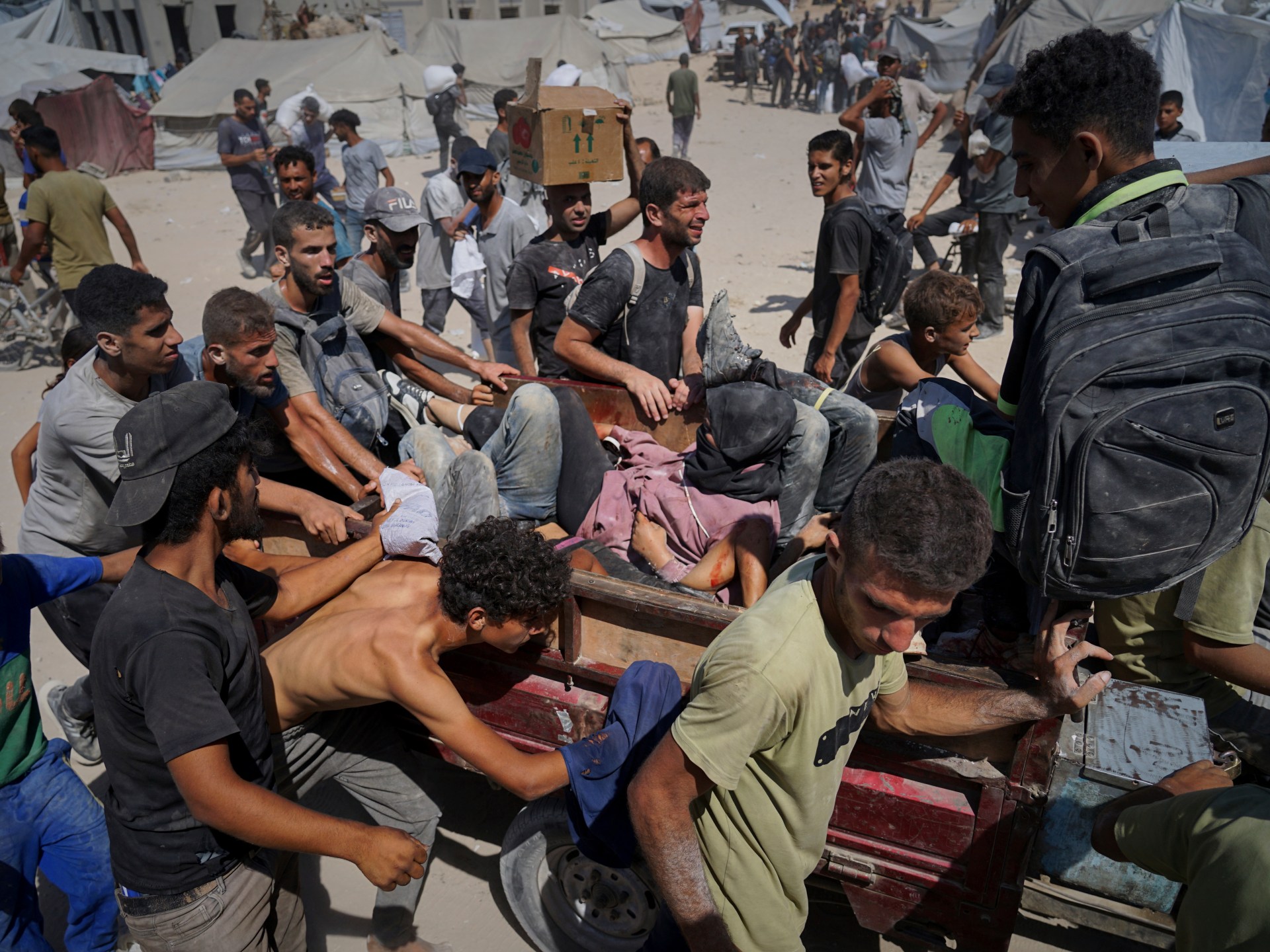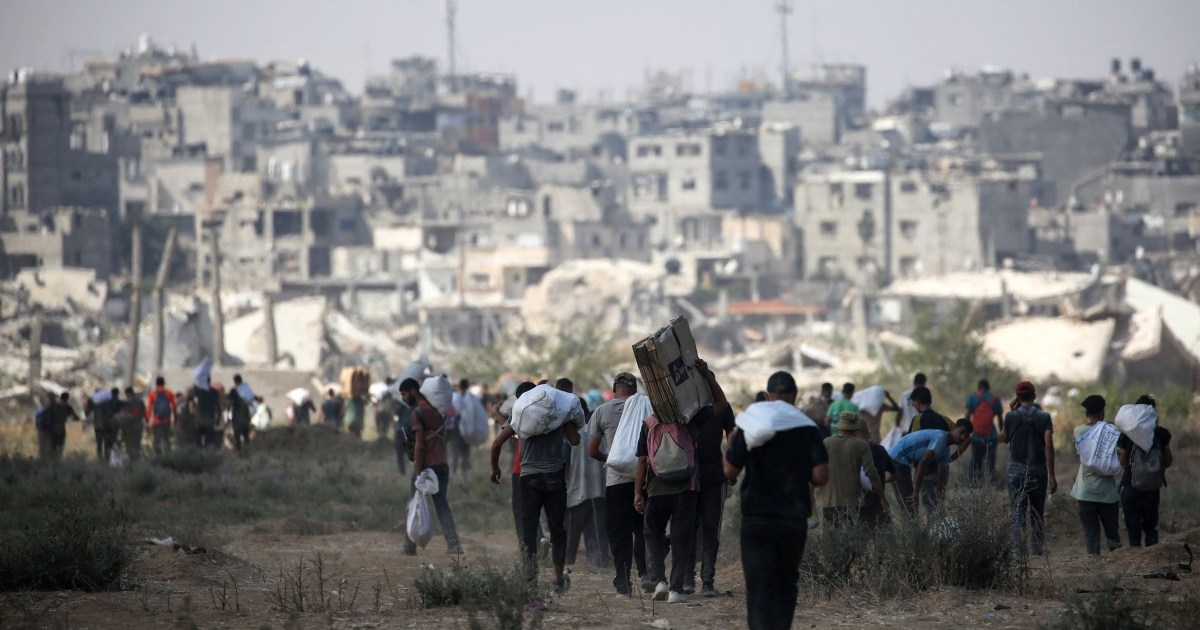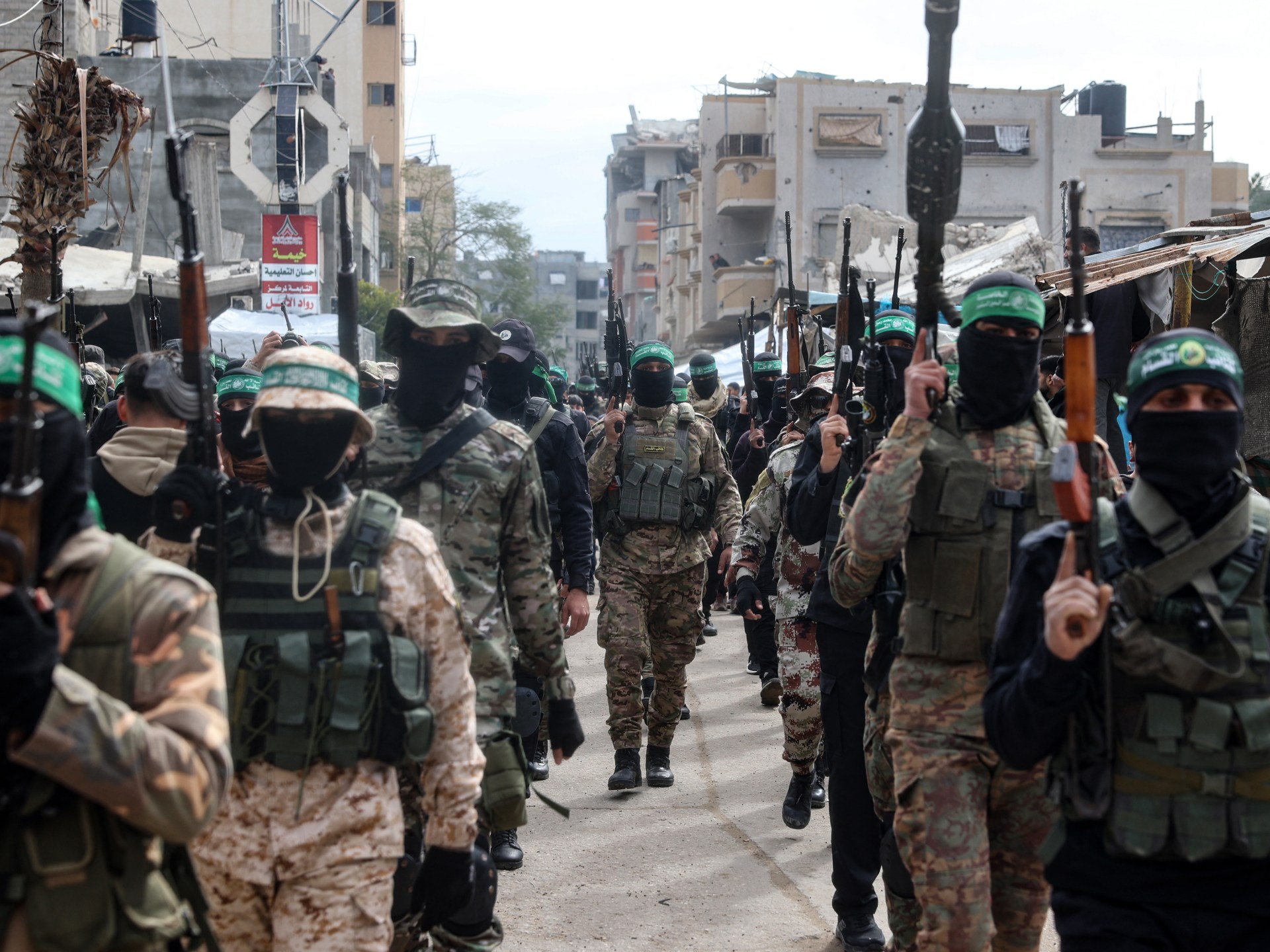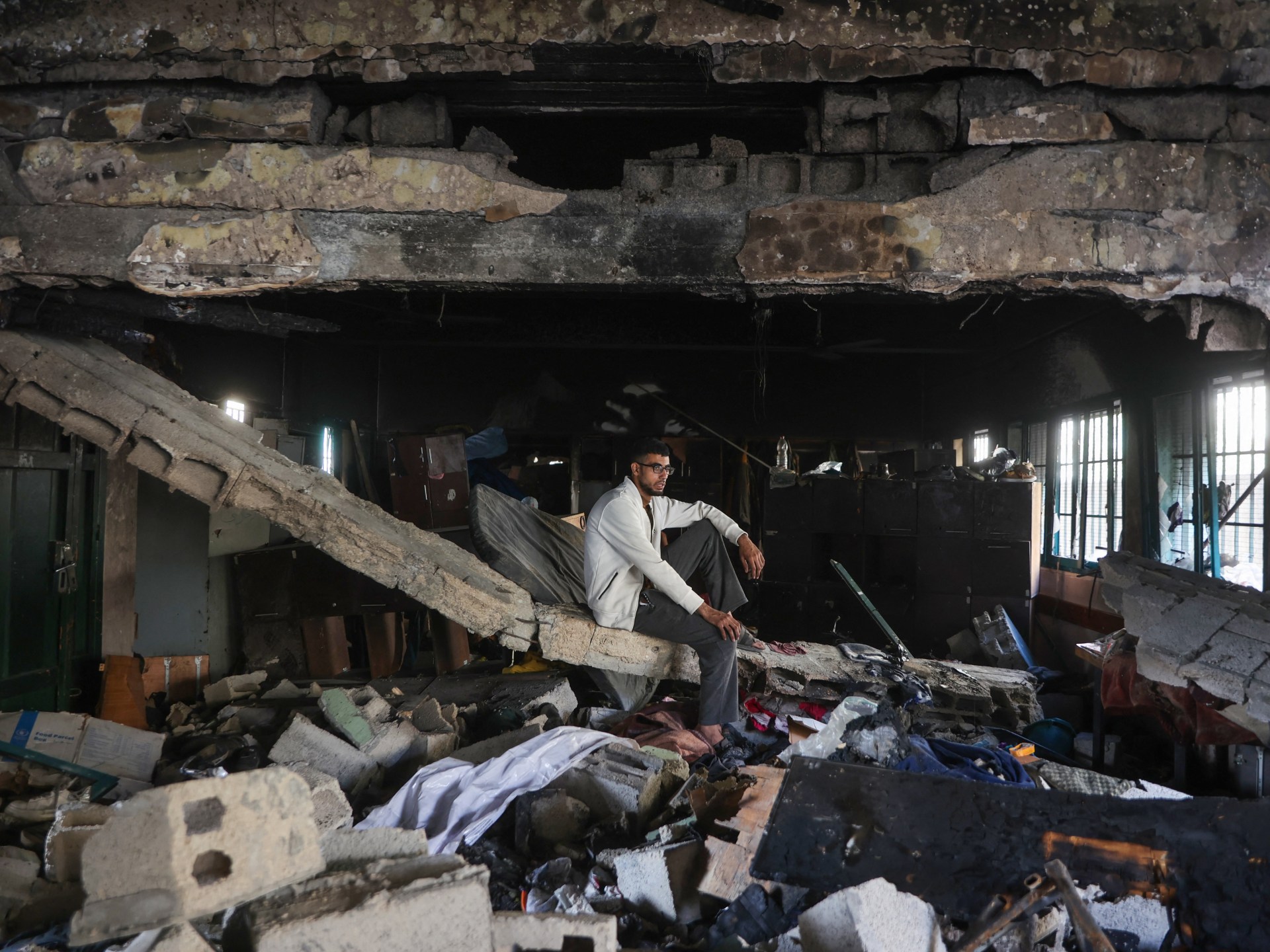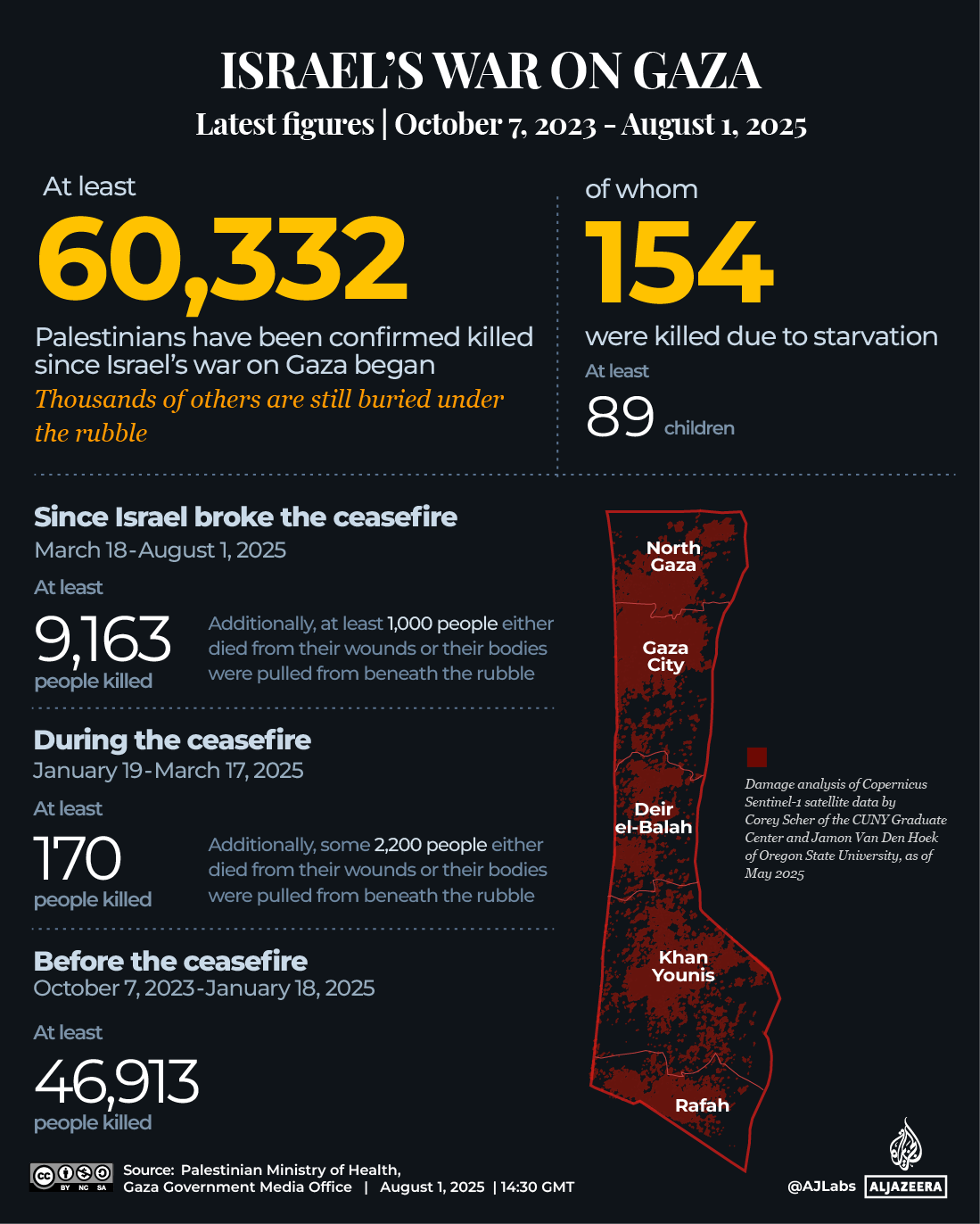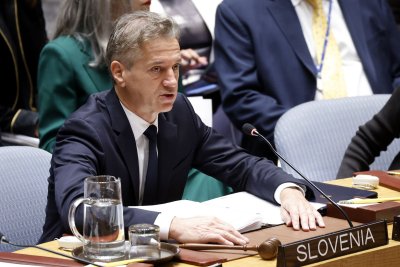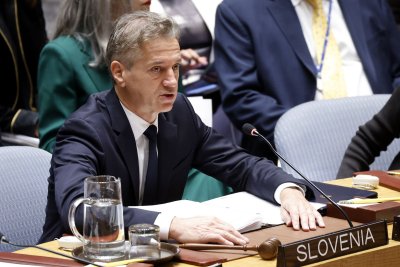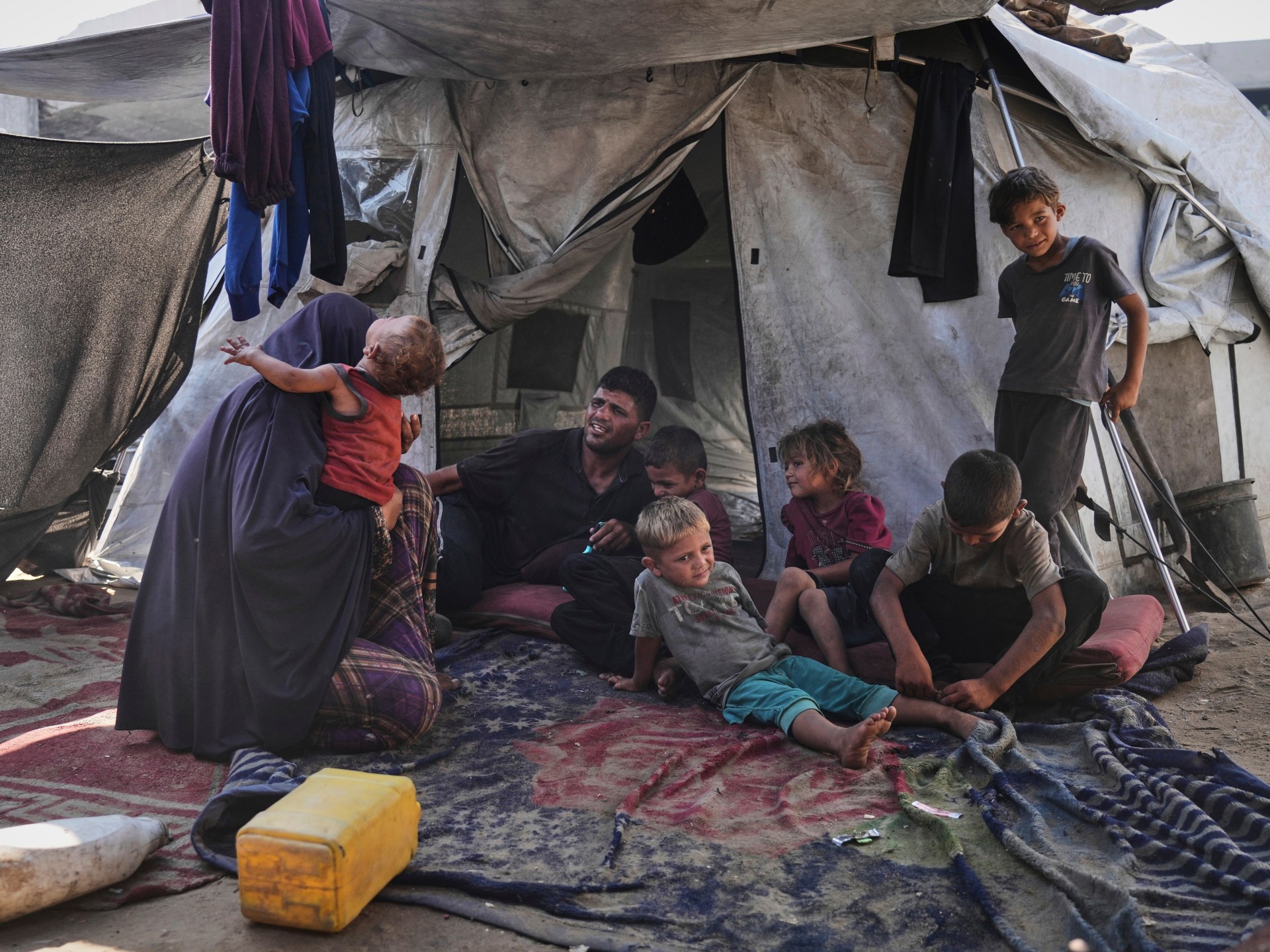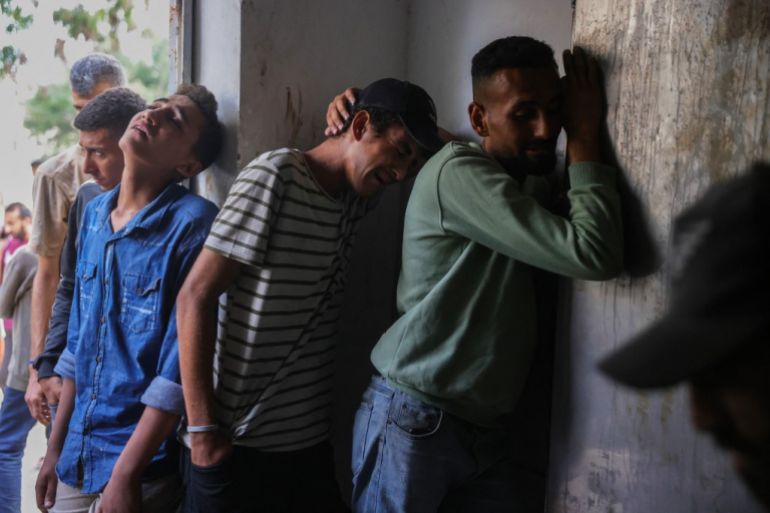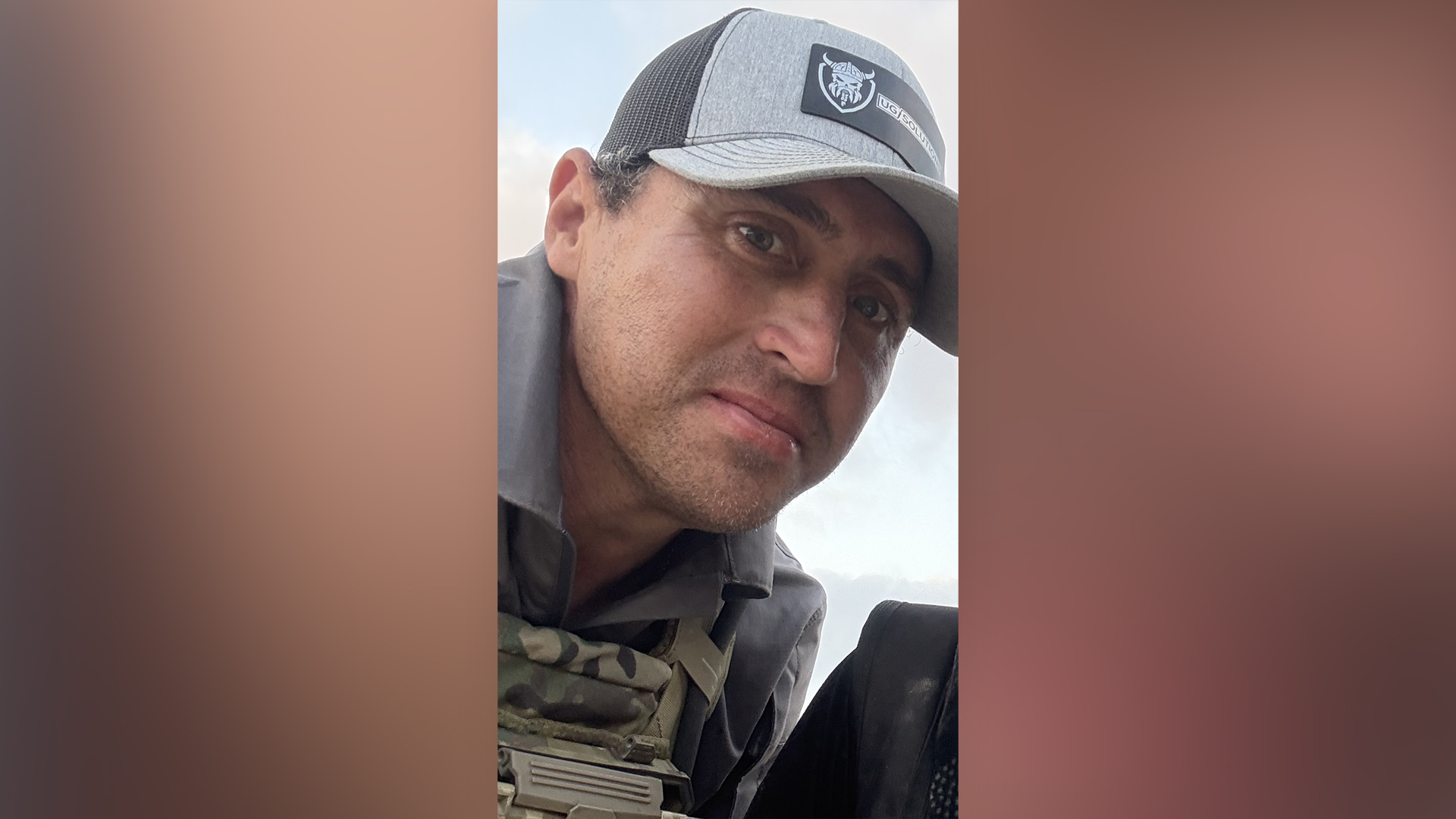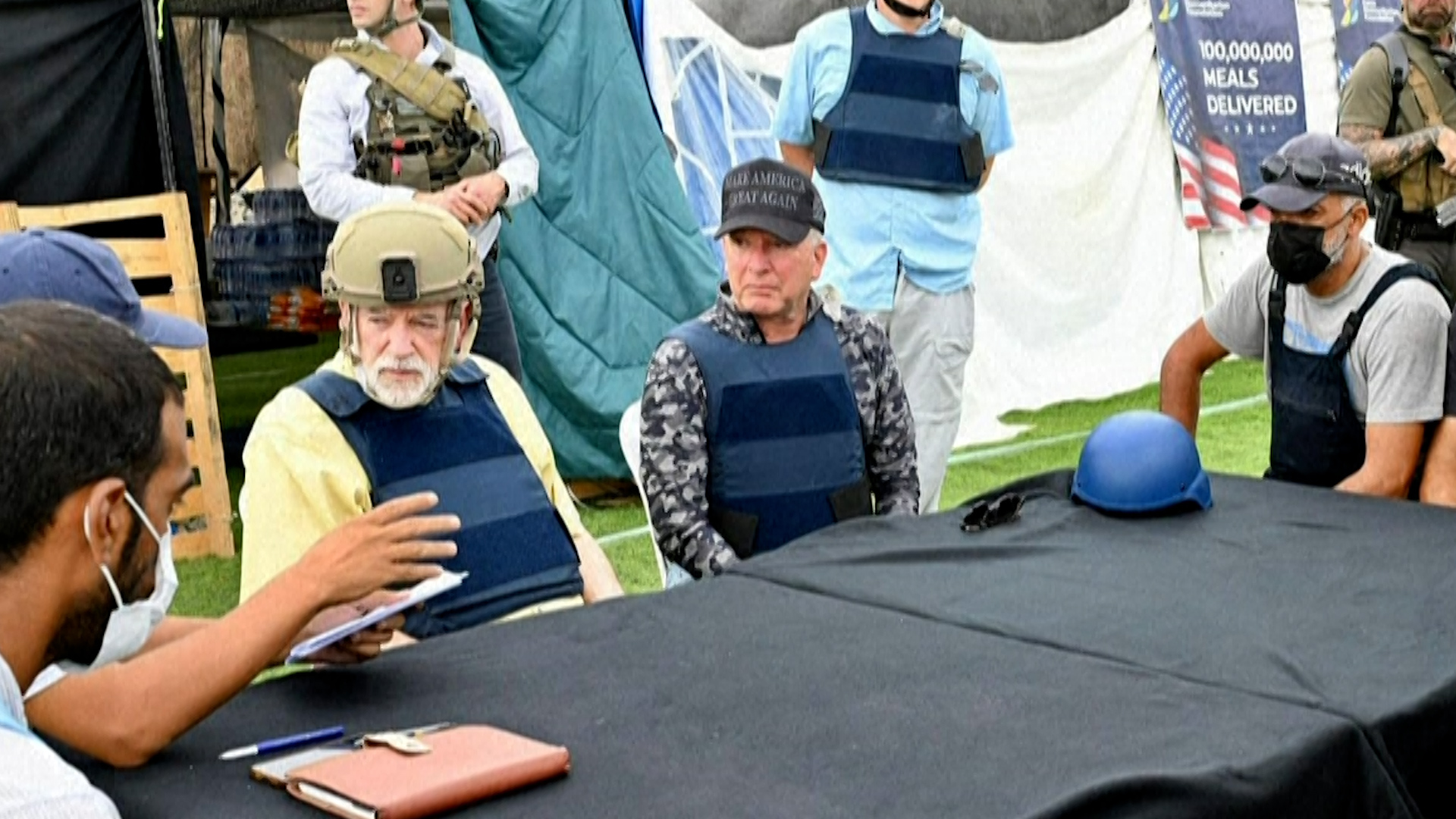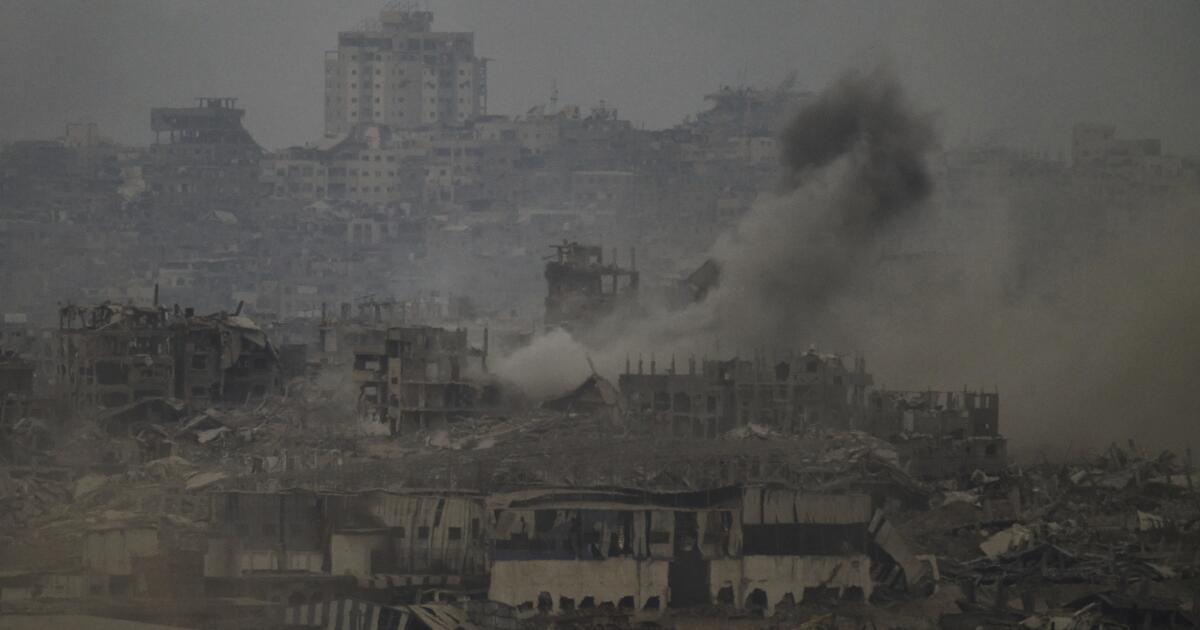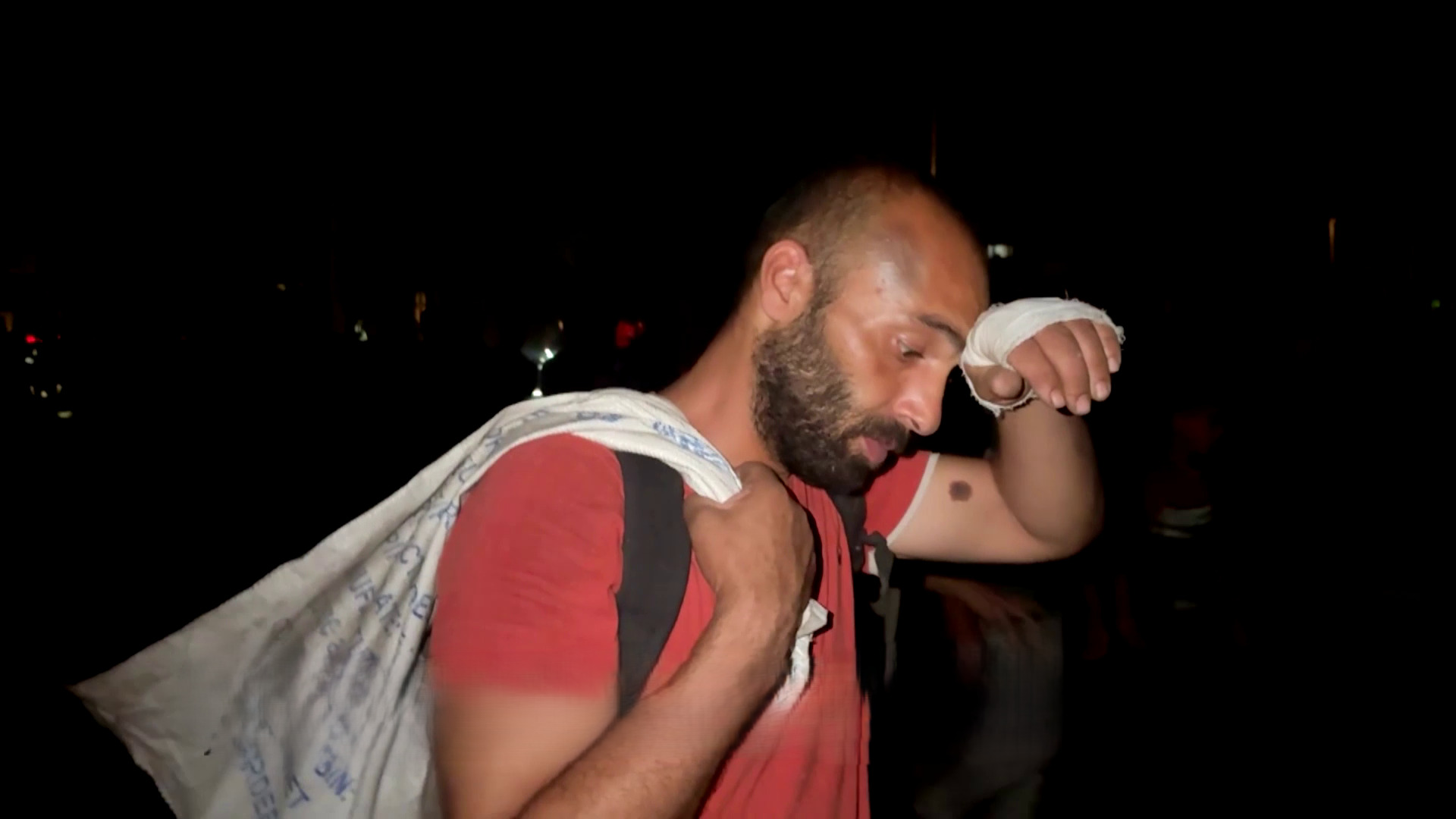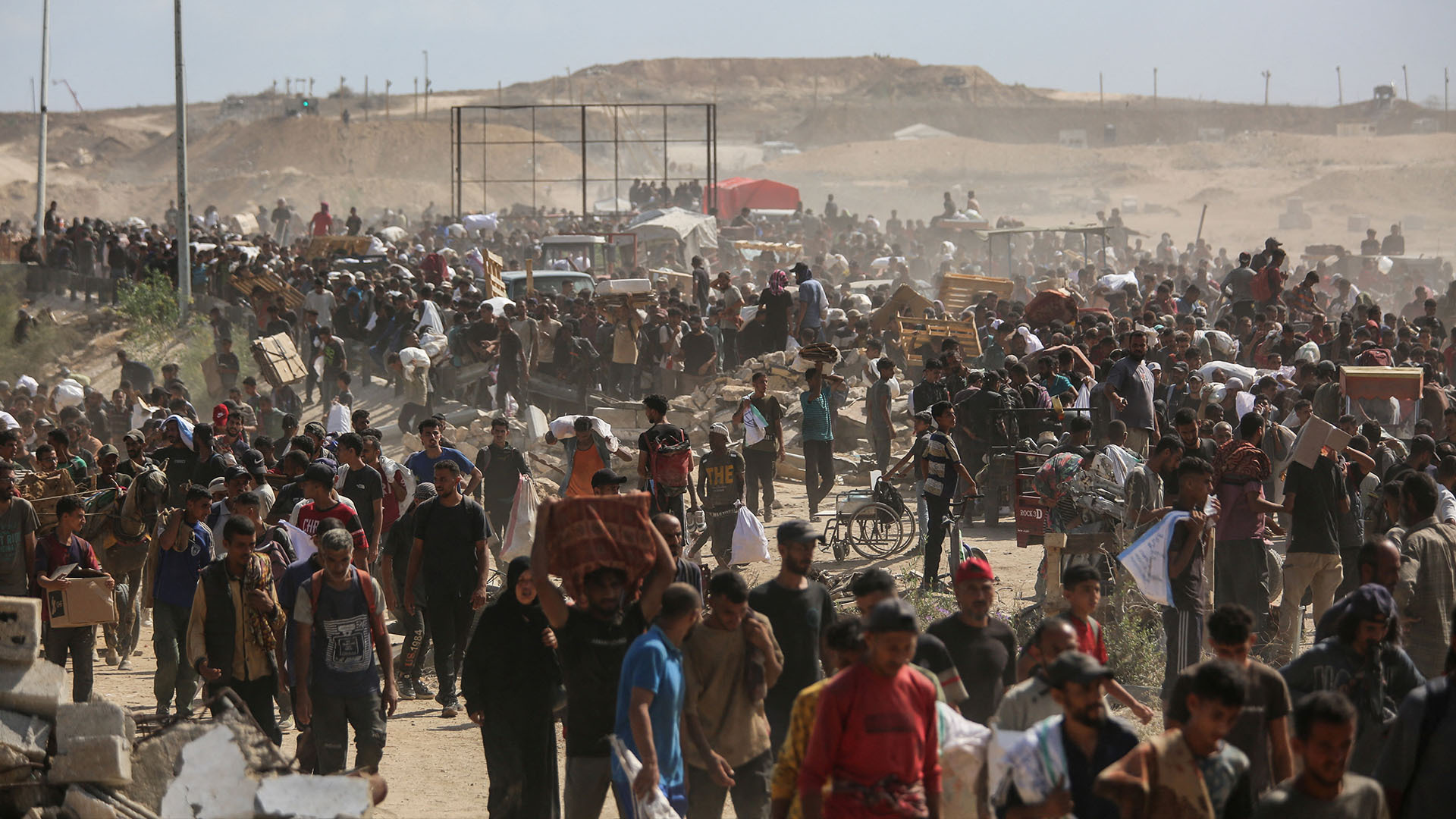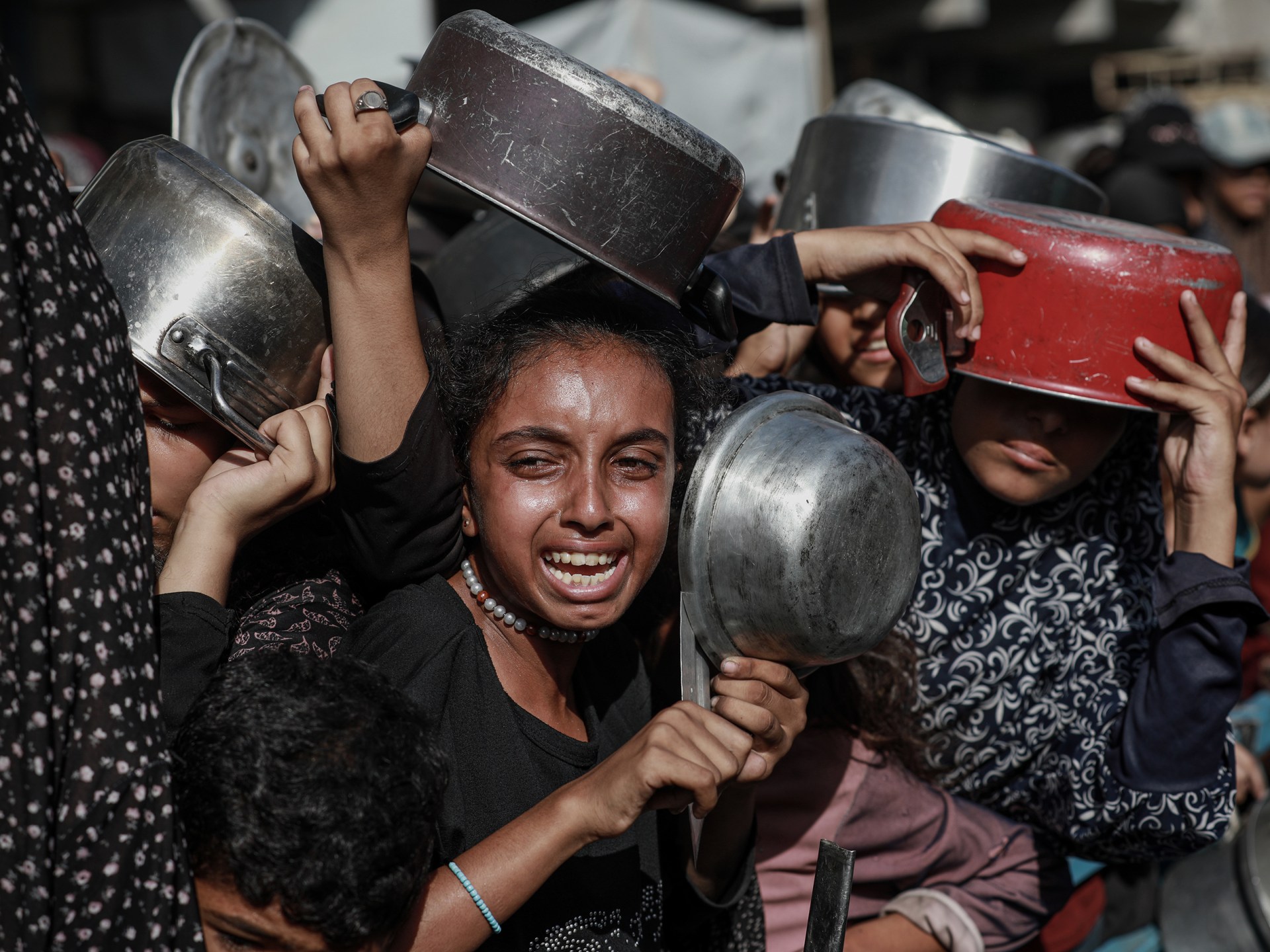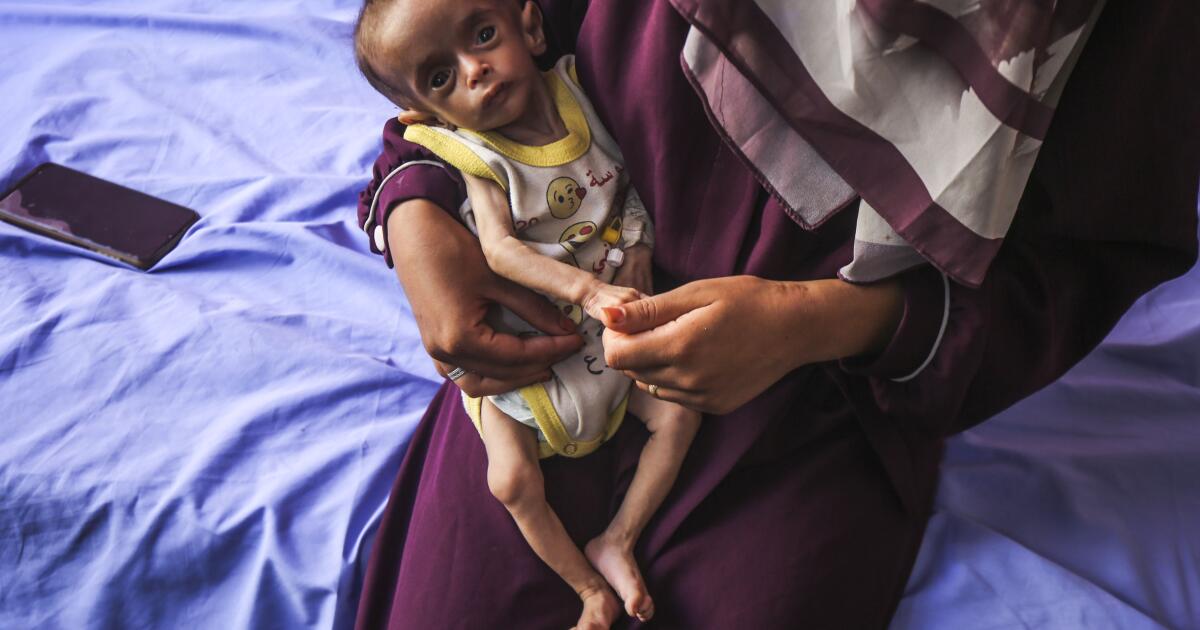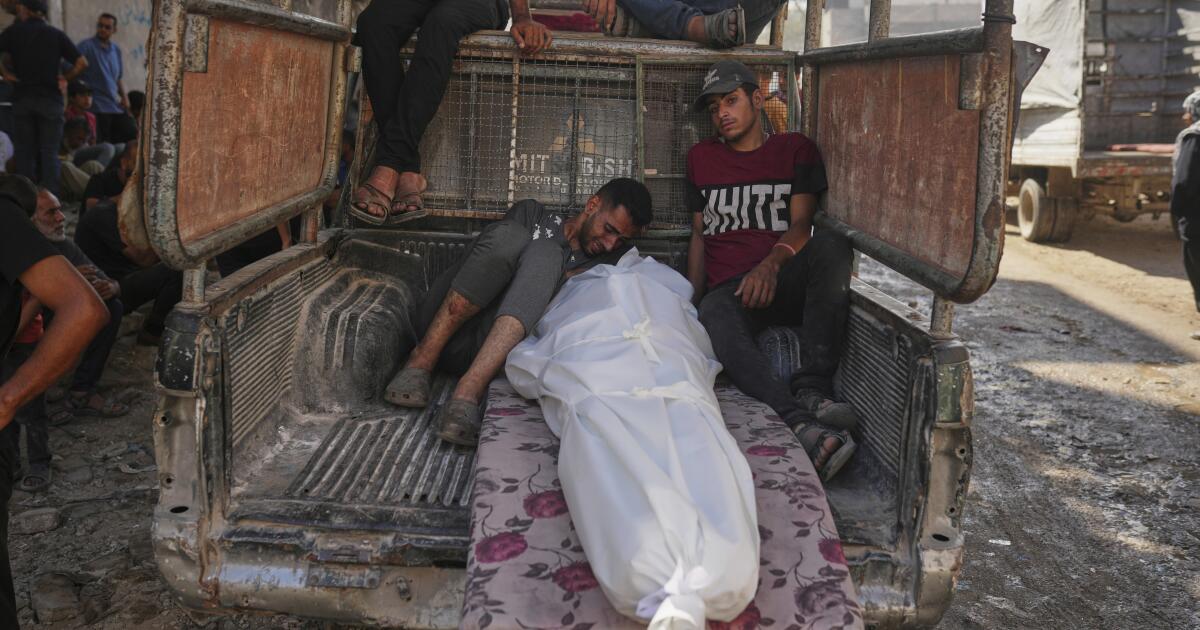DEIR AL BALAH, Gaza Strip — President Trump’s Mideast envoy on Friday visited a food distribution site in the Gaza Strip operated by an Israeli-backed American contractor whose efforts to deliver food to the hunger-stricken territory have been marred by violence and controversy.
International experts warned this week that a “worst-case scenario of famine” is playing out in Gaza. Israel’s nearly 22-month military offensive against Hamas has shattered security in the territory of some 2 million Palestinians and made it nearly impossible to safely deliver food to starving people.
Mideast envoy Steve Witkoff and U.S. Ambassador to Israel Mike Huckabee toured a Gaza Humanitarian Foundation distribution site in Rafah, Gaza’s southernmost city, which has been almost completely destroyed and is now a largely depopulated Israeli military zone.
Hundreds of people have been killed by Israeli fire while heading to such aid sites since May, according to witnesses, health officials and the U.N. human rights office. Israel and GHF say they have only fired warning shots and that the toll has been exaggerated.
In a report issued Friday, the New York-based Human Rights Watch said GHF was at the heart of a “flawed, militarized aid distribution system that has turned aid distributions into regular bloodbaths.”
Hundreds have been killed seeking food
Witkoff posted on X that he had spent over five hours inside Gaza in order to gain “a clear understanding of the humanitarian situation and help craft a plan to deliver food and medical aid to the people of Gaza.”
Chapin Fay, a spokesperson for GHF, said the visit reflected Trump’s understanding of the stakes and that “feeding civilians, not Hamas, must be the priority.” The group says it has delivered over 100 million meals since it began operations in May.
All four of the group’s sites established in May are in zones controlled by the Israeli military and have become flashpoints of desperation, with starving people scrambling for scarce aid.
Over 1,000 people have been killed by Israeli fire since May while seeking aid in the territory, most near the GHF sites but also near United Nations aid convoys, the U.N. human rights office said last month.
The Israeli military says it has only fired warning shots at people who approach its forces, and GHF says its armed contractors have only used pepper spray or fired warning shots to prevent deadly crowding.
Officials at Nasser Hospital in southern Gaza said Friday they received the bodies of 13 people who were killed while trying to get aid, including near the site that U.S. officials visited. GHF denied anyone was killed at their sites on Friday and said most recent shootings had occurred near U.N. aid convoys.
Another 12 people were killed in Israeli airstrikes, the hospital said.
The Israeli military said its forces had fired warning shots hundreds of meters (yards) away from the aid site at people it described as suspects and said had ignored orders to distance themselves from its forces. It said it was not aware of any casualties but was still investigating.
Witkoff’s visit comes a week after U.S. officials walked away from ceasefire talks in Qatar, blaming Hamas and pledging to seek other ways to rescue Israeli hostages and make Gaza safe. Trump wrote on social media that the fastest way to end the crisis would be for Hamas to surrender and release hostages.
Human Rights Watch slams Israeli-backed aid system
Human Rights Watch said in its report that “it would be near impossible for Palestinians to follow the instructions issued by GHF, stay safe, and receive aid, particularly in the context of ongoing military operations.” It cited doctors, aid seekers and at least one GHF security contractor.
Building on previous accounts, it described how thousands of Palestinians gather near the sites at night before they open. As they head to the sites on foot, Israeli forces control their movements by opening fire toward them. Once inside the sites, they race for aid in a frenzied fee-for-all, with weaker and more vulnerable people coming away with nothing, the rights group said.
Responding to the report, Israel’s military accused Hamas of sabotaging the aid distribution system, without providing evidence. It said it was working to make the routes under its control safer for those traveling to aid sites. GHF did not immediately respond to questions about the report.
The group has never allowed journalists to visit their sites and Israel’s military has barred reporters from independently entering Gaza throughout the war.
At a Friday press conference in Gaza City, representatives of the territory’s influential tribes accused Israel of empowering factions that loot aid sites and implored Witkoff to stay in Gaza to witness life firsthand. Israel denies aiding looters but says it backs factions that are opposed to Hamas.
“We want the American envoy to come and live among us in these tents where there is no water, no food and no light,” they said. “Our children are hungry in the streets.”
German foreign minister visits West Bank to highlight settler violence
Germany’s foreign minister visited Taybeh in the occupied West Bank, a Palestinian Christian village that has seen recent attacks by Israeli settlers. Johann Wadephul said Israel’s settlements are an obstacle to peace and condemned settler violence. He also called on Hamas to lay down its arms in Gaza and release the remaining hostages.
Germany has thus far declined to join other major Western countries in announcing plans to recognize a Palestinian state.
Palestinians in another nearby town laid to rest 45-year-old Khamis Ayad, who they say suffocated while extinguishing fires set by settlers during an attack the night before. Witnesses said Israeli forces fired live rounds and tear gas toward residents after the settlers attacked.
Israel’s military said police were investigating the incident. They said security forces found Hebrew graffiti and a burnt vehicle at the scene but had not detained any suspects.
There has been a rise in settler attacks, as well as Palestinian militant attacks on Israelis and large-scale Israeli military operations in the occupied West Bank since Hamas’ Oct. 7, 2023, attack out of Gaza triggered the war there.
Hamas-led militants killed around 1,200 people, mostly civilians, that day and abducted 251 others. They still hold 50 hostages, including around 20 believed to be alive. Most of the others have been released in ceasefires or other deals.
Israel’s retaliatory offensive has killed more than 60,000 Palestinians, according to Gaza’s Health Ministry. Its count doesn’t distinguish between militants and civilians. The ministry operates under the Hamas government. The U.N. and other international organizations see it as the most reliable source of data on casualties.
Shurafa, Metz and Frankel write for the Associated Press. Metz reported from Jerusalem and Frankel from Tel Aviv.
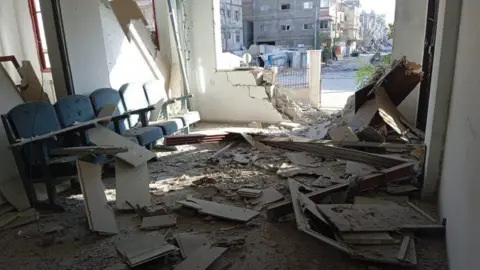 Palestine Red Crescent Society
Palestine Red Crescent Society

